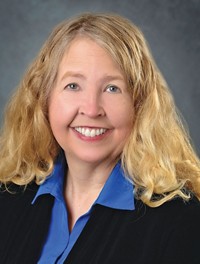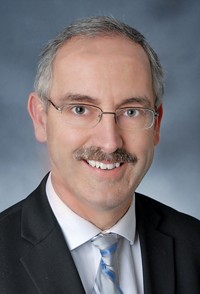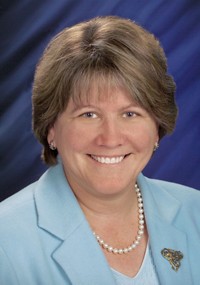Advertisement
Grab your lab coat. Let's get started
Welcome!
Welcome!
Create an account below to get 6 C&EN articles per month, receive newsletters and more - all free.
It seems this is your first time logging in online. Please enter the following information to continue.
As an ACS member you automatically get access to this site. All we need is few more details to create your reading experience.
Not you? Sign in with a different account.
Not you? Sign in with a different account.
ERROR 1
ERROR 1
ERROR 2
ERROR 2
ERROR 2
ERROR 2
ERROR 2
Password and Confirm password must match.
If you have an ACS member number, please enter it here so we can link this account to your membership. (optional)
ERROR 2
ACS values your privacy. By submitting your information, you are gaining access to C&EN and subscribing to our weekly newsletter. We use the information you provide to make your reading experience better, and we will never sell your data to third party members.
Careers
For director-at-large: Wayne E. Jones Jr.
September 11, 2017
| A version of this story appeared in
Volume 95, Issue 36
Binghamton Section. University of New Hampshire, Durham, N.H.
Academic record: St. Michael’s College, B.S., 1987; University of North Carolina, Ph.D., 1991.
Honors: Who’s Who in Science & Engineering, 2001–; State University of New York Chancellors Award for Excellence in Research, 2017; E. Ann Nalley Northeast Region Award for Volunteer Service, 2015; ACS Fellow, 2010; Honorary Golden Key Faculty Award, 2005; State University of New York Chancellors Award for Excellence in Teaching and University Award for Excellence in Teaching, 2001; Distinguished Service Award, ACS Binghamton Section, 1999; Who’s Who Among American Teachers, 1998; Alpha Xi Sigma Teaching Award, 1996.
Professional positions (for past 10 years): University of New Hampshire, dean of engineering and physical sciences and professor of chemistry, 2017–; Chromananotech, founding chief scientist, 2015–; Binghamton University, professor, 2006–, department chair, 2009–17, interim dean of arts and sciences, 2012–13, director of the Center for Learning & Teaching, 1996–2009.
Service in ACS national offices: Committee on Committees, chair, 2015–17; Council Policy Committee, ex officio (nonvoting), 2015–16, 2010–12, 2008–09; Committee on Membership Affairs, chair, 2011–13, Program Review Advisory Group, 2010–12; Committee on Local Section Activities, chair, 2008–09; Board Committee on Planning (nonvoting), 2008.
Service in ACS offices:Binghamton Section: councilor, 1997–2017; chair, 2001; chair-elect, 2000. Northeast Regional Meeting Board: treasurer, 2007–. 34th Northeastern Regional Meeting: chair, 2005–06. 41st Northeastern Regional Meeting: chair, 2015–16. Division of Chemical Education: Program Committee, 2005–15; program cochair, Denver, 2015, 2011, Chicago, 2007.
Member: Member of ACS since 1989; American Association for the Advancement of Science; Materials Research Society; American Society for Engineering Education; ACS divisions: Chemical Education, Inorganic Chemistry.
Related activities: Go Green Institute, director, 2008–; graduate program director and Center for Advanced Microelectronics Manufacturing, education director, 2006–09; Science Olympiad, PR chair, 2005–09; Science Olympiad, volunteer, 1996–2009; Journal of Educational Technology Systems, guest editor of special issue, 2005–08; SUNY Faculty Access to Computing Technology Advisory Committee, 2001–06; undergraduate program chair, 1996–2001; Chemistry Olympiad, coordinator, 1995–98. Author of over 150 publications and book chapters; nine patents; approximately 245 invited lectures; organizer or co-organizer of eight national and international symposia in inorganic chemistry, polymer chemistry, and chemical education.
Jones’s statement
It is an honor to have been nominated to serve the American Chemical Society as director-at-large on the board of directors. As a midcareer chemist with over 20 years of experience across the chemistry enterprise in ACS, education, and start-up companies, my goal is to focus on members and support the resources to help them succeed professionally.
Members are the lifeblood of ACS, and it is critical that they be involved throughout the chemistry enterprise. In my recent service on the Board of Directors Task Force on Governance Design, I have been particularly impressed by the unique power that member engagement plays in ACS compared to other national science and engineering societies. Beyond representation on the council, which should reflect the diversity of our membership, we need to find more opportunities for members to engage with ACS and improve people’s lives through the transforming power of chemistry. As a member and chair of several national ACS committees, including the Local Section Activities Committee and the Membership Affairs Committee, it has been abundantly clear that the value of ACS membership must be communicated more clearly. This includes publications and meetings, of course, but also professional development, advocacy for the chemistry enterprise, and outreach to future chemists and society. Focusing on a broad, diverse membership and its needs will ensure the viability and impact of ACS and chemistry for years to come.
Education is the key to advancing the broader chemistry enterprise and its practitioners, and ACS has a powerful role to play in this arena. Strategic and research-based educational investments will enhance our current portfolio of activities. Having participated actively in division and local section education activities throughout my career, I have seen opportunities to enhance programming at the local and regional levels. As chair of two regional meetings, I worked hard to ensure that programming included research-based teaching, undergraduate research, and interactive workshops—areas that I will support and expand at the national level. We should also become more involved at the graduate and postdoctoral level with professional development programs such as ChemIDP. Graduate students and young professionals need more than academic experience. ACS can help bring mentoring and career programming to this critical segment of our education community.
Jobs and career development across disciplines that employ chemical professionals is a global challenge that ACS can help address. While chemistry employment may be strong relative to other segments, there is much work to be done. Programming and support for members and chemistry professionals going through career changes and downsizing are critical, and this need is only growing. Activities at the national, regional, and local levels targeting this group, as well as recent graduates, should be supported. We can help chemical professionals explore career options away from the bench and opportunities for starting their own businesses or working with start-ups. ACS can play a bigger role in using online methods to deliver professional development, as well as connect and help individuals network and get access to new opportunities.
Thank you for the opportunity to continue to work with you and my fellow councilors in support of the ACS mission and vision. Ultimately, the director-at-large position is an opportunity to represent you directly on the board. We truly can have an impact for our members, and I look forward to learning more about your ideas to advance the chemical enterprise. You can always reach me at wayne.e.jones.jr@gmail.com.






Join the conversation
Contact the reporter
Submit a Letter to the Editor for publication
Engage with us on Twitter